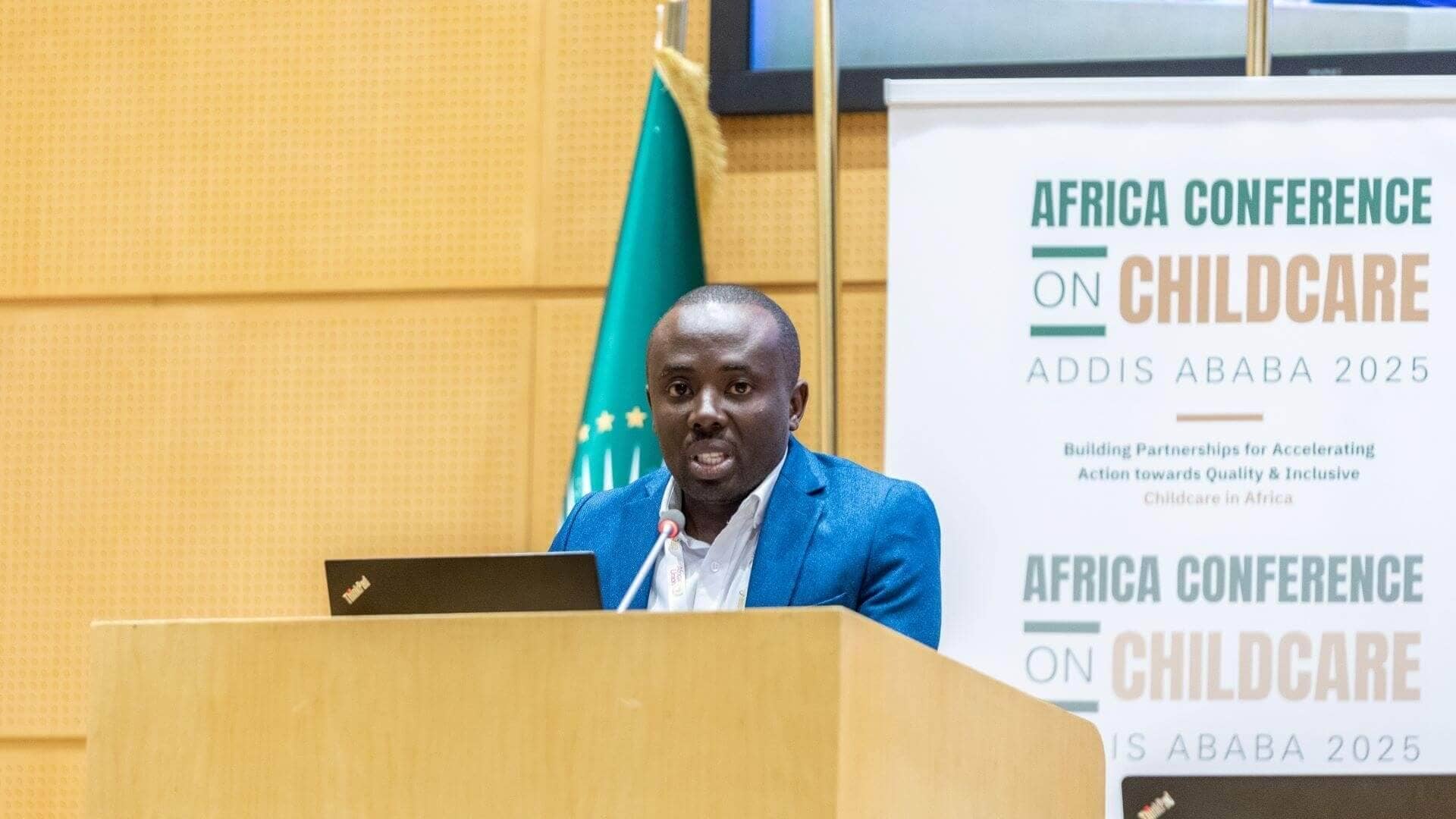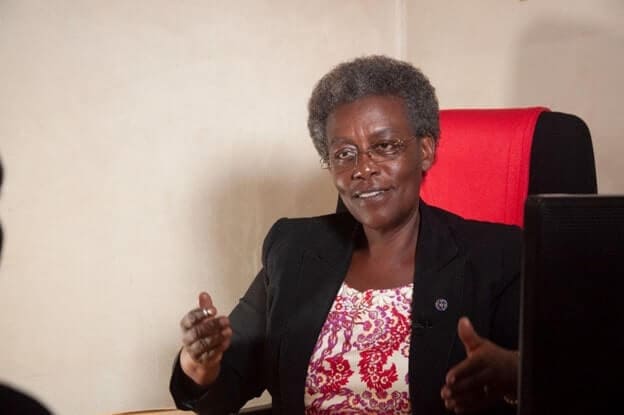Government Urged to Prioritize Early Childhood Development
Government Urged to Prioritize Early Childhood Development
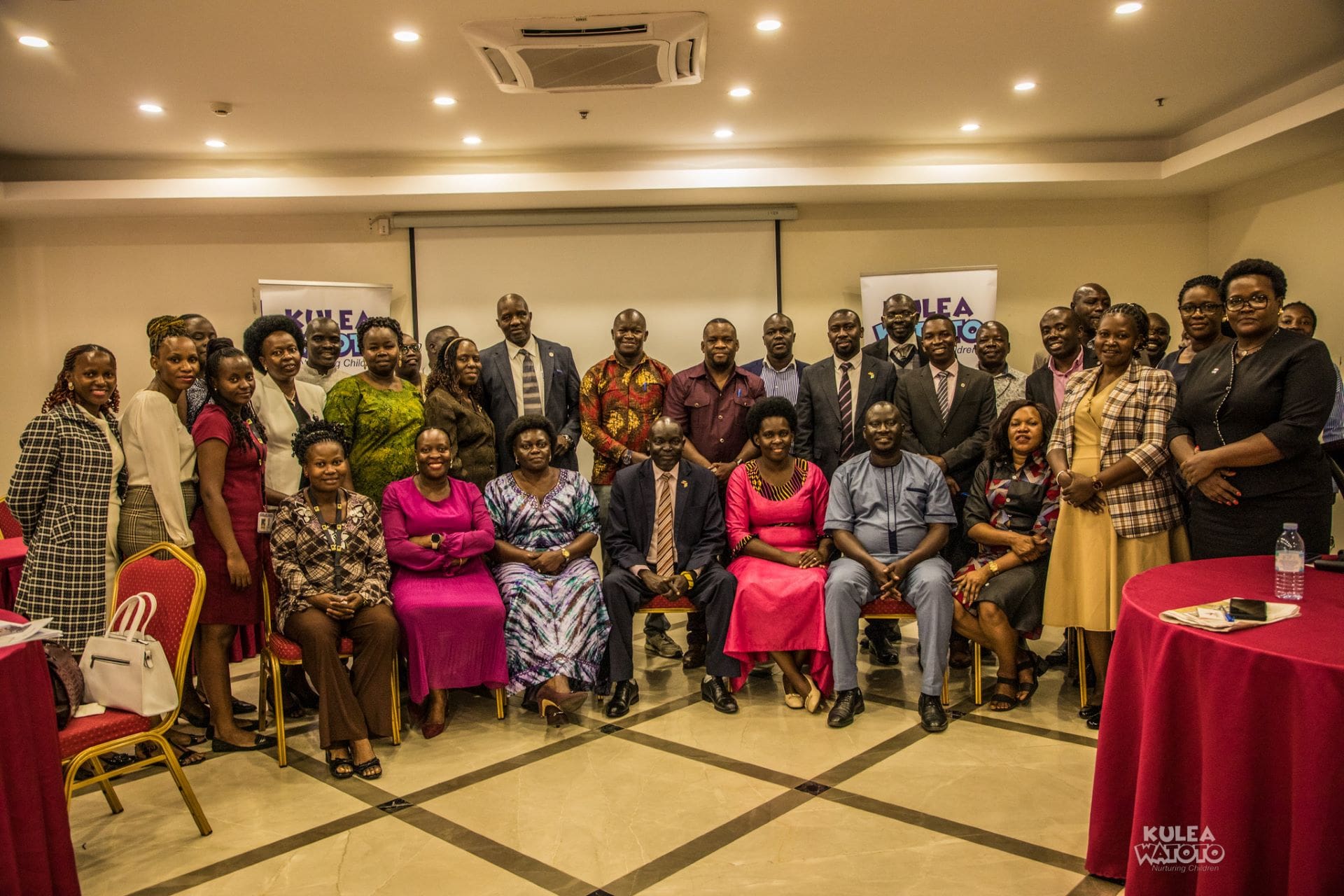
Members of Parliament together with Kulea Watoto Project Consortium partners pose for a group photo after a policy dialogue where a paper ‘Why Government of Uganda needs to prioritize Early Childhood Development’ was presented
Members of the Uganda Parliamentary Forum for Children (UPFC) have been urged to advocate for the prioritization of Early Childhood Development (ECD) within government policy during a recent policy dialogue. This dialogue was prompted by the presentation of an Issue Paper titled “Why the Government of Uganda Needs to Prioritize Early Childhood Development” by the Kulea Watoto Project consortium partners, which underscores the urgent need for enhanced focus on Early Childhood Education (ECD) in Uganda and outlines actionable recommendations to improve access, quality, and funding for ECD programs.
Cuthbert Aongat, the Kulea Watoto Project Coordinator, emphasized that ECD is currently deprioritized, with a substantial reliance on the private sector.
“Many children are missing out on early childhood education due to several factors, including high school fees associated with privately managed ECD programs. Consequently, they are often enrolled directly in Primary One, missing the crucial benefits that early childhood education provides,” he noted.
Echoing Aongat’s concerns, Hon. Margaret Okunga Makoha, Chairperson of the Parliamentary Forum for Children, highlighted the long-term academic challenges that arise when early childhood education is neglected.
“The government is making a grave mistake by failing to lay a strong foundation for our children,” she cautioned. “Targeting children once they are in Primary One presents a significant challenge; we are attempting to stimulate brains that should have been nurtured during the pre-primary stages. Research consistently shows a correlation between high dropout rates and children who missed pre-primary education.”
Hon. Makoha expressed gratitude to the Kulea Watoto Project consortium for initiating this crucial dialogue and called for further research to support their advocacy efforts in Parliament.
“As advocates for children, we are the voice of the voiceless. The information you provide is invaluable and will aid us in influencing the government to intentionally invest in Early Childhood Development initiatives,” she said.
The Issue Paper, presented by Hussein Mwesige, District Education Officer of Kyegegwa District, and Alex Alinaitwe, Research Manager at the AfriCHILD Center, emphasized alarming trends in ECD access and enrollment. For instance, enrollment rates for children aged 3-4 years plummeted to only 40% in 2020, revealing stark disparities in access across the country. Quality in ECD remains a pressing issue, primarily due to insufficiently trained personnel and a lack of educational resources. "Many ECD centers operate with undertrained staff, severely impacting the delivery of quality education," the paper asserts.
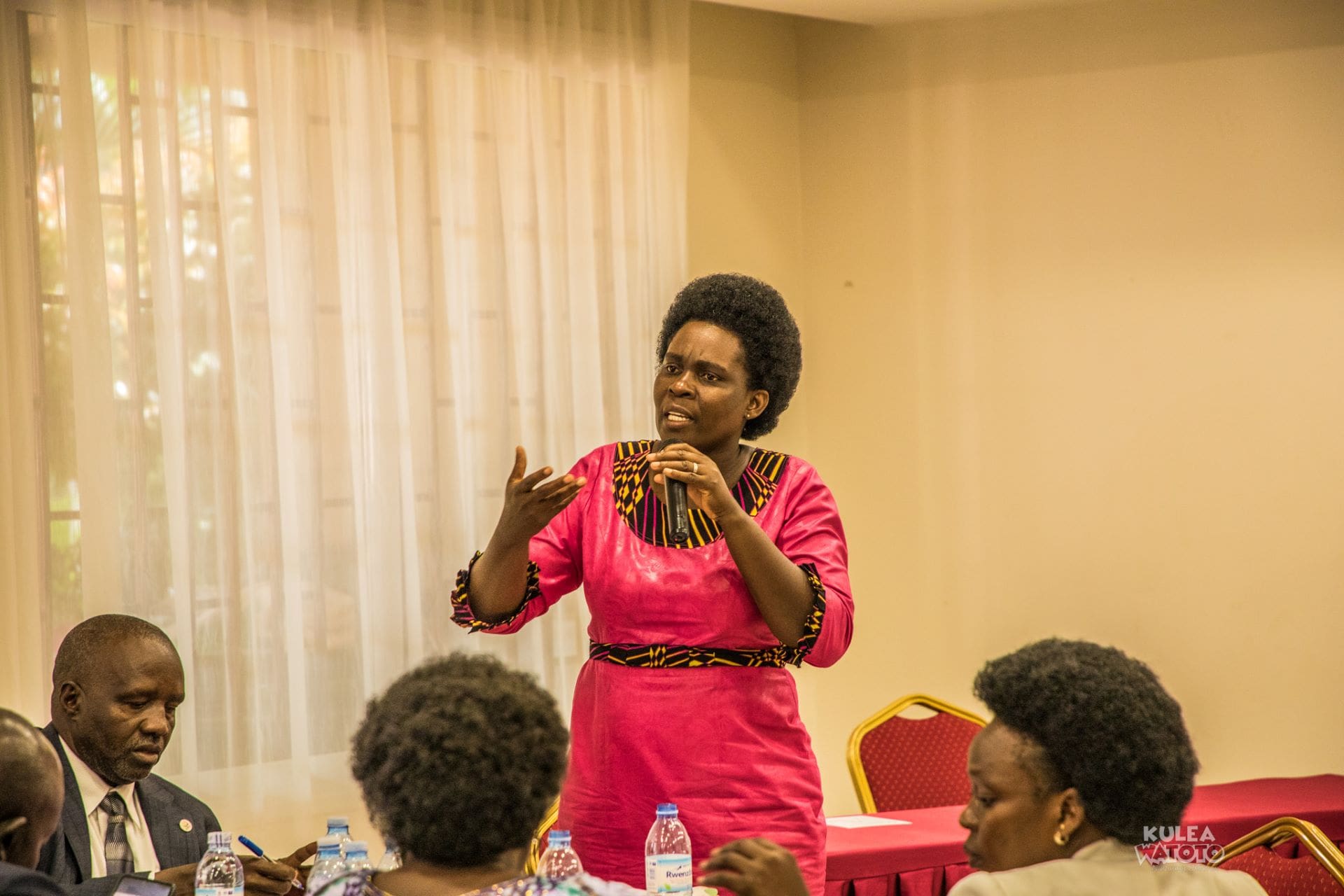
Hon. Margaret Makhoha, Chairperson of the Uganda Parliamentary Forum on Children and counterparts including Hon. Sarah Opendi, Hon. Ssewuungu Gonzaga react to the issue paper ‘Why the Government of Uganda Needs to Prioritize Early Childhood Development’ that was presented by a team from Kulea Watoto
Furthermore, the paper points to the Education Act of 2008, particularly Section 10, which restricts public financing for pre-primary education. This restriction has resulted in underfunded ECD programs and has shifted the financial burden onto families, many of whom cannot afford private education. The paper presents case studies from countries like Kenya, which has made significant progress in Early Childhood Education through a comprehensive ECD policy framework that integrates ECD into the national education system, ensuring all children have access to quality early learning opportunities.
To address these challenges, the Issue Paper lays out several recommendations for legislators, including amending Section 10 of the Education Act to allow for government funding of pre-primary education, making at least one year of pre-primary education compulsory in all government-aided schools, appropriating sufficient funds for early childhood education, supporting training and professional development for ECD educators, investing in infrastructure development for ECD centers, including the construction of classrooms and upgrades to existing facilities, and implementing interventions for school feeding programs in both primary and pre-primary schools to ensure children receive adequate nutrition.
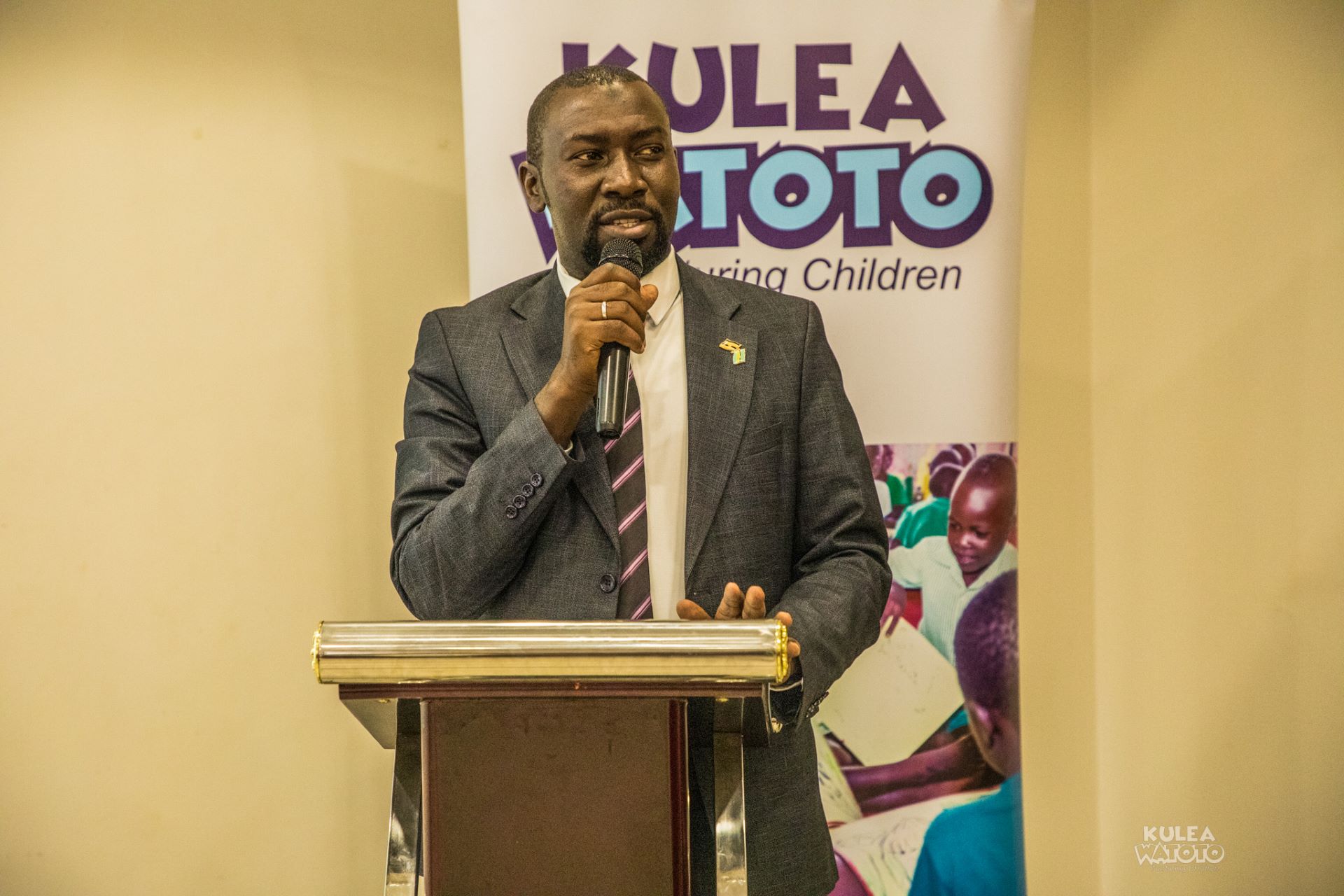 |  |
Hussein Mwesige, DEO Kyegegwa District and Alex Alinaitwe, Research Manager AfriCHILD make their submissions during the policy dialogue with MPs on the Parliamentary Forum on Children. They among others recommended that pre-primary education is made compulsory starting with at least one-year compulsory pre-primary education in all government-aided schools
During the dialogue, legislators generated actionable points, pledging to collectively promote these recommendations in Parliament. Key action items include drafting a letter to the Minister for Education, Hon. Janet Kataha Museveni, to discuss the issues raised in the paper, meeting with Deputy Speaker Hon. Thomas Tayebwa to prepare a motion addressing these issues on the floor of Parliament, advocating for the inclusion of ECD issues during the President’s State of the Nation Address, and collaborating with the Prime Minister, Rt. Hon. Robinah Nabbanja, during her Question Time to raise awareness of ECD challenges.
In a noteworthy development, Information Minister Hon. Chris Baryomunsi recently announced the government’s approval of the Early Childhood Development Policy, which aims to prioritize the care and education of children aged zero to five years.
“This initiative is crucial, given that scientific research indicates that intellectual and cognitive development is at its peak during this formative period,” Baryomunsi stated.
Despite these advancements, the stark reality remains that fewer than 1 in 10 pre-primary-aged children (ages 3-5) in Uganda are enrolled in formal pre-primary education, and 60% of this age group does not attend any school at all.

